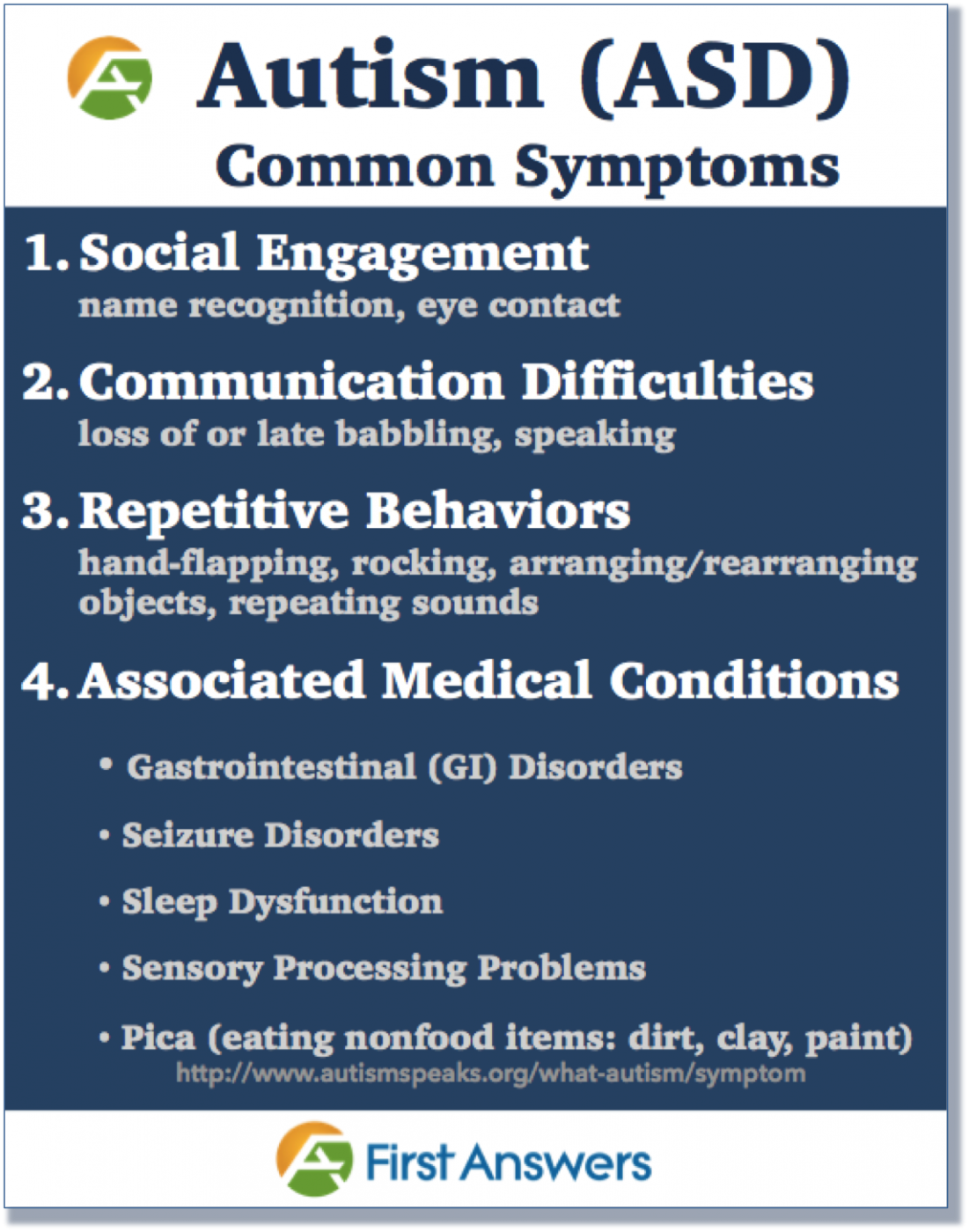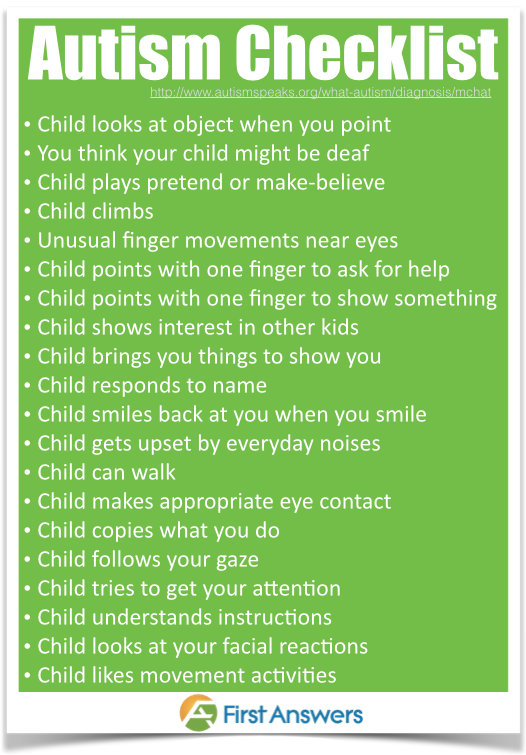From Autism Checklist to Treatment for Autism
Does my child have autism?
"What are the signs or symptoms of autism?"
"Maybe he is just developing differently."
"How can I really know?"
"What's the best treatment for autism?"
"What do I do next?"
If you are asking yourself these questions, or looking for answers, you may want to consider looking for a more accurate diagnosis for your child. Learning  early, if your child has autism, and finding treatment for autism children can make a big difference in your ability to help your child develop. If you recognize some of the symptoms of autism in your child, you should consider looking at an autism checklist to be more sure. Based on the results of your test, you should then consider speaking with a doctor or an early intervention autism specialist. Just take things one step at a time, one day at a time. But do get started early.
early, if your child has autism, and finding treatment for autism children can make a big difference in your ability to help your child develop. If you recognize some of the symptoms of autism in your child, you should consider looking at an autism checklist to be more sure. Based on the results of your test, you should then consider speaking with a doctor or an early intervention autism specialist. Just take things one step at a time, one day at a time. But do get started early.
Here are the top, nationally recognized autism checklist questions from autismspeaks.org
(http://www.autismspeaks.org/what-autism/diagnosis/mchat)
-
If you point at something across the room, does your child look at it?(For Example, if you point at a toy or an animal, does your child look at the toy or animal?)
-
Have you ever wondered if your child might be deaf?
-
Does your child play pretend or make-believe?(For Example, pretend to drink from an empty cup, pretend to talk on a phone, or pretend to feed a doll or stuffed animal?)
-
Does your child like climbing on things?(For Example, furniture, playground equipment, or stairs)
-
Does your child make unusual finger movements near his or her eyes?(For Example, does your child wiggle his or her fingers close to his or her eyes?)
-
Does your child point with one finger to ask for something or to get help?(For Example, pointing to a snack or toy that is out of reach)
-
Does your child point with one finger to show you something interesting?(For Example, pointing to an airplane in the sky or a big truck in the road)
-
Is your child interested in other children?(For Example, does your child watch other children, smile at them, or go to them?)
-
Does your child show you things by bringing them to you or holding them up for you to see — not to get help, but just to share?(For Example, showing you a flower, a stuffed animal, or a toy truck)
-
Does your child respond when you call his or her name?(For Example, does he or she look up, talk or babble, or stop what he or she is doing when you call his or her name?)
-
When you smile at your child, does he or she smile back at you? -
Does your child get upset by everyday noises?(For Example, does your child scream or cry to noise such as a vacuum cleaner or loud music?)
-
Does your child walk?
-
Does your child look you in the eye when you are talking to him or her, playing with him or her, or dressing him or her?
-
Does your child try to copy what you do?(For Example, wave bye-bye, clap, or make a funny noise when you do)

-
If you turn your head to look at something, does your child look around to see what you are looking at?
-
Does your child try to get you to watch him or her?(For Example, does your child look at you for praise, or say “look” or “watch me”?)
-
Does your child understand when you tell him or her to do something?(For Example, if you don't point, can your child understand “put the book on the chair” or “bring me the blanket”?)
-
If something new happens, does your child look at your face to see how you feel about it?(For Example, if he or she hears a strange or funny noise, or sees a new toy, will he or she look at your face?)
-
Does your child like movement activities?(For Example, being swung or bounced on your knee)
Don't just rely on your own interpretation on the symptoms of autism–find out for sure by following the links to autismspeaks.org to find the autism checklist for your child. If the checklist confirms that your child might possibly have autism, seek professionals who can help you find the best treatment for autism. The earlier you start, the better it is for your child, and for you.
LINKS FOR AUTISM CHECKLIST & TREATMENT FOR AUTISM
- Questions for this autism check list come from the MCHATR (Modified Checklist for Autism, Revised) test on AutismSpeaks.org.
Take the test here: http://www.autismspeaks.org/what-autism/diagnosis/mchat - Autism treatment network: http://www.autismspeaks.org/science/resources-programs/autism-treatment-network
- Find an online early intervention autism specialist. Click here.
- Find online courses for how to discipline children with autism. Click here.
 RSS Feed
RSS Feed